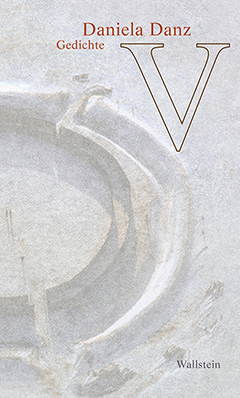Countrysidedays: Poems by Daniela Danz
translated by Monika Cassel
Daniela Danz is a young East German poet who has been described as the “new voice” of German poetry. Her third book of poems, V, (2014) explores the evolution of the concept of fatherland. The word Vaterland, from which the title comes, formerly denoted “the father’s field,” but has expanded through the Latin patria to convey a sense of national identity. V explores this development in a series of wide-ranging but interconnected poems. Personal, local, and global history, as well as Germany’s inheritance of its own dark past, all combine in a poetry that still seeks moments of beauty and shared humanity.
The Circle
Until the frost came, men gathered every day from the settlements in the surrounding area to set the stakes. They had a word for when everyone did something and what was done belonged to all. Sometimes the young women came and teased the young men from the outside. The circle was still a construction site; people still called across it and ran through it as if it were nothing but a fallow meadow. But at night sometimes mothers came, carrying a child that had cried itself out, and they would lay the child down in the spot that looked to them like the center of the circle; sometimes even the women’s quiet sounds echoed off the palisades; it wasn’t long now until the circle would be completed. Once there was a fight between two men on account of an insult. That night they met to resolve the conflict. The moon was bright, and they could see each other’s faces—that was enough, and each man went back to his own settlement. But in the morning, traces of a struggle were visible, crushed grass and bits of fur. That was the foxes, they chased a hare in here—together, said the men, a trace of pride for the foxes detectable in their voices. One of the men who had been there in the night figured it out: it had already happened when we got here, we didn’t even notice it, we were standing right here where the fur is still lying now. He said: The stakes have to be set very close together at all the entrances. So that it is just like a room without a roof. And the others heard his voice echo and saw that the dismembered hare was the first sacrifice to have been performed in the center of the circle, even before it was fully completed. And all of a sudden it smelled like winter. The young women didn’t come that day, they had too much work to do in the settlements. Over the course of the winter everyone would see less of each other, but now the space was there. How snow would cover the circle, a man thought, and what tracks we would see the next morning. Together, he thought, we will discover who was here, and perhaps that will be the thing that separates us.
Here [1]
The express trains hardly stop in our neck of the woods
after all who sees how the path embraces
the field from all sides as if it alone were keeping the grain
from scattering in a sudden flood into the furrows
the way men greet each other here on bicycles
with only a nod of recognition
in order to say: I see you are alive
from the train all this is split into right
and left the landscape just a view
two fellows there were from these parts who recently
on one of those countrysidedays when from inside the train
you daydream about what it would be like to live here
laid themselves on the tracks between Leißling
and the dam near Weißenfels—the train stopped
the world the express train was heading for derailed
after stopping for a long time in the central German emptiness
a traveler could actually distinguish the shades of different white paints
on the houses along the street that leads to the edge of the woods
we stood high up on Goseck saw from afar the dust
of the threshing machines passing over Eulau’s stone-age graves
that hold the crushed skulls of all thirteen of their dead
the train being pulled through the plane like a linked necklace
by one who grasped all this more quickly than we did
we saw and didn’t know why it had stopped here
in our parts where the trains hardly ever stop
an early autumn day it was and those two they were
ripped right out of the landscape or right into
it—we left when they had changed drivers
on the express train that now slowly started up again
The Living Are Legends [2]
but what are the dead?
It was not the time to stray in that kind
of emptiness like the one in the morning very early
when the cat dragged the innards of a blackbird
up the cellar steps
it was not the right time to go
to the mailbox to say:
nothing tonight nothing
happened no it was not
the time to no it was not so no not
happened the nothing as
in my sleep I watched a battle
the bird in the barrage
fell out of the gray onto my face it was not
time to sleep to be for oneself
not time to praise the cat
while burying the blackbird
[1] Goseck: Schloss Goseck near Naumberg and its suburb Eulau, where neolithic graves, the first known to contain family units, were discovered. Also the site of the Neolithic Goseck Circle, one of the earliest monumental architectural structures in Europe. Return to Text
[2] This poem is written in response to the media’s treatment of the death of Muammar al-Gaddafi. Return to Text
Published on May 5, 2017

